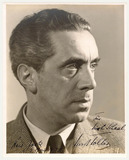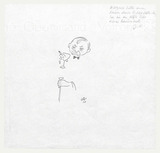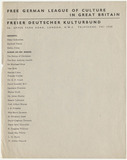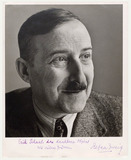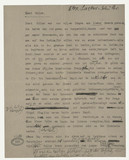In Memoriam Joseph Roth [and] Ernst Toller, programme (1939)
In Memoriam Joseph Roth [and] Ernst Toller, programme (1939)
Versuchen Sie doch nicht[,] vollwertige Engländer zu werden. Sie werden es niemals erreichen, denn es fehlten Ihnen die geistigen Voraussetzungen dazu. Bleiben Sie lieber gute Deutsche, denn in den kommenden Jahren wird die Welt gute Deutsche brauchen. Und wenn Sie etwas vom englischen Geiste in Ihr Deutschtum aufnehmen können, so werden Sie den beiden Völkern gute Dienste leisten.
[Don't try to become fully English. You will never manage it because you don't have the necessary mental prerequisites. You would be better off remaining good Germans, because in the years to come, the world will need good Germans. If you want to add something of the English spirit to your Germanness, that would be a service to both nations. (ed. trans.)]
Henry Wickham Steed in an introductory speech at the memorial service for Joseph Roth and Ernst Toller, FDKB Nachrichten, 1940
In May 1939, two important exiled literary figures died within a few days of one another: Ernst Toller on 22 May – by suicide – in New York and Joseph Roth on 27 May in Paris. The Free German League of Culture in Great Britain organised a memorial service for Toller and Roth in London on 22 June, 1939. It was the third ever event held by the League of Culture.
The introductory words by Henry Wickham Steed, the former editor of The Times and one of the patrons of the League of Culture, were in perfect harmony with the aims of the organisation, which were to maintain “free” German culture in exile in order to be able to bring it back to Germany once Nazism had been defeated.
Stefan Zweig, who held a speech about the life and work of his friend and colleague Joseph Roth, had similar sentiments: He compared emigré artists and writers with the section of a defeated army whose task it is to cover the retreat and allow a realignment to take place later. Despite all the human loss of exile, he was insistent that this task never be lost from view.
In addition to readings from Roth's novels Radetzkymarsch [Radetzky March, 1932] and Hiob [Job, 1930], a speech of Toller's and excerpts from his Briefe aus dem Gefängnis were also recited. Toller in particular was no unknown in England, as he had spent the first few years of his exile there. His autobiography, Eine Jugend in Deutschland (published in German in 1933, and in English as I was a German in 1934), had been released in England to great interest.


